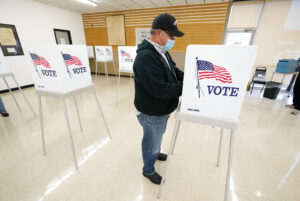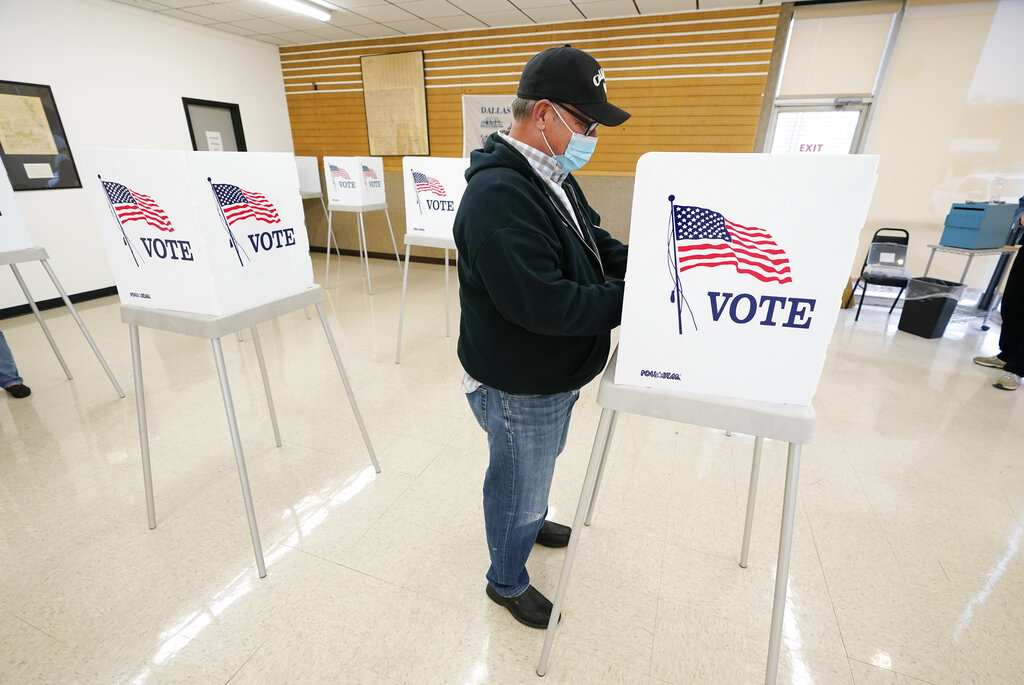
Andrew Thompson, a junior at Drake University studying Political Science, is yearning for a return to normalcy after four chaotic years of the Trump presidency.
“I hope that when I listen to a daily news podcast I can go a week without hearing anything from the Oval Office. That would be lovely,” said Thompson, who just cast his ballot for the first time in the 2020 Presidential Election.
Like millions across the United States, Thompson is eager to see change and is waiting apprehensively for what may come next as votes are expected to continue to be counted days after the Election. In a fight to secure the future, Iowa has become more important than ever as one of 13 key battleground states that will help to decide America’s next commander-in-chief.
“I don’t remember what normal is supposed to look like since I’m 20 but a little of that would also be refreshing,” Thompson added.
In the build up to Election Day, Trump led his challenger by one point, according to FiveThirtyEight’s Iowa polling average. The site’s Iowa forecast model gave Trump a 60% chance of victory.
While these are hardly winning marks for Biden, it is a noticeable improvement for the Democratic Party from the beginning of June. At that point in the race, FiveThirtyEight’s forecast model gave Trump a 66% chance of victory with polls holding a 3-point lead over the challenger.
This paradigm shift is due in large part to the COVID-19 pandemic and economic recession that has followed. There have been nearly 2,000 COVID-19 deaths in the state. And while Iowa’s job market has fared better than many other states with unemployment holding at 4.7%, businesses have continued to struggle.
Voters cast ballots at record numbers in this Election. Over half a million had been sent for tabulation by October 23rd, 51% from Democrats and 31% from Republicans. While Democrats usually lead the charge on early voting, the current difference lies in the margin of that gap.
But not all Iowans are as energized for Biden as Thompson and the statistics would have one believe.
“I was a big Bernie supporter in 2016, I was a big Bernie supporter this time around,” said Emmanuel Hidalgo-Wohlleben, a senior at New York University and editor-in-chief at the Journal of Politics and International Affairs.
“I would love to see some more progressive changes,” added Hidalgo-Wohlleben. “But I don’t really expect any seismic changes to happen under a Biden presidency. I think it’s much more likely that we’ll go to something more akin to the Obama presidency.”
For varying reasons, other voters have found themselves holding similar sentiments. “I wouldn’t say, ‘I vote Democrat or Republican,’” said Benjamin Florence, a senior at New York University studying Music Business. “I look at the issues and make my decision.”
Florence voted for Jo Jorgensen, the Libertarian Party nominee. “Maybe I’m lucky because my candidate has no chance of winning so there’s no stress on my back. It kind of feels like it’s out of my hands. But that also makes me feel good. It makes me feel like I voted for the person that I want and that’s all I can do.”
But that attitude is hardly universal. As the possibility of another Trump term looms large, many voters feel the stakes are too high to rest easy.
“After the last four years, I think my sense of normal is out of whack,” said Thompson, signaling his commitment to cast a ballot. “This morning I got up early and got to the polls when they opened.”
But even if Trump loses, Thompson worries about the civil unrest that may follow.
“I’m not sure what’s going on with the Trump campaign but a lot of the stuff they’ve been doing and saying doesn’t seem indicative of people who are willing to give up a loss,” said Thompson.








